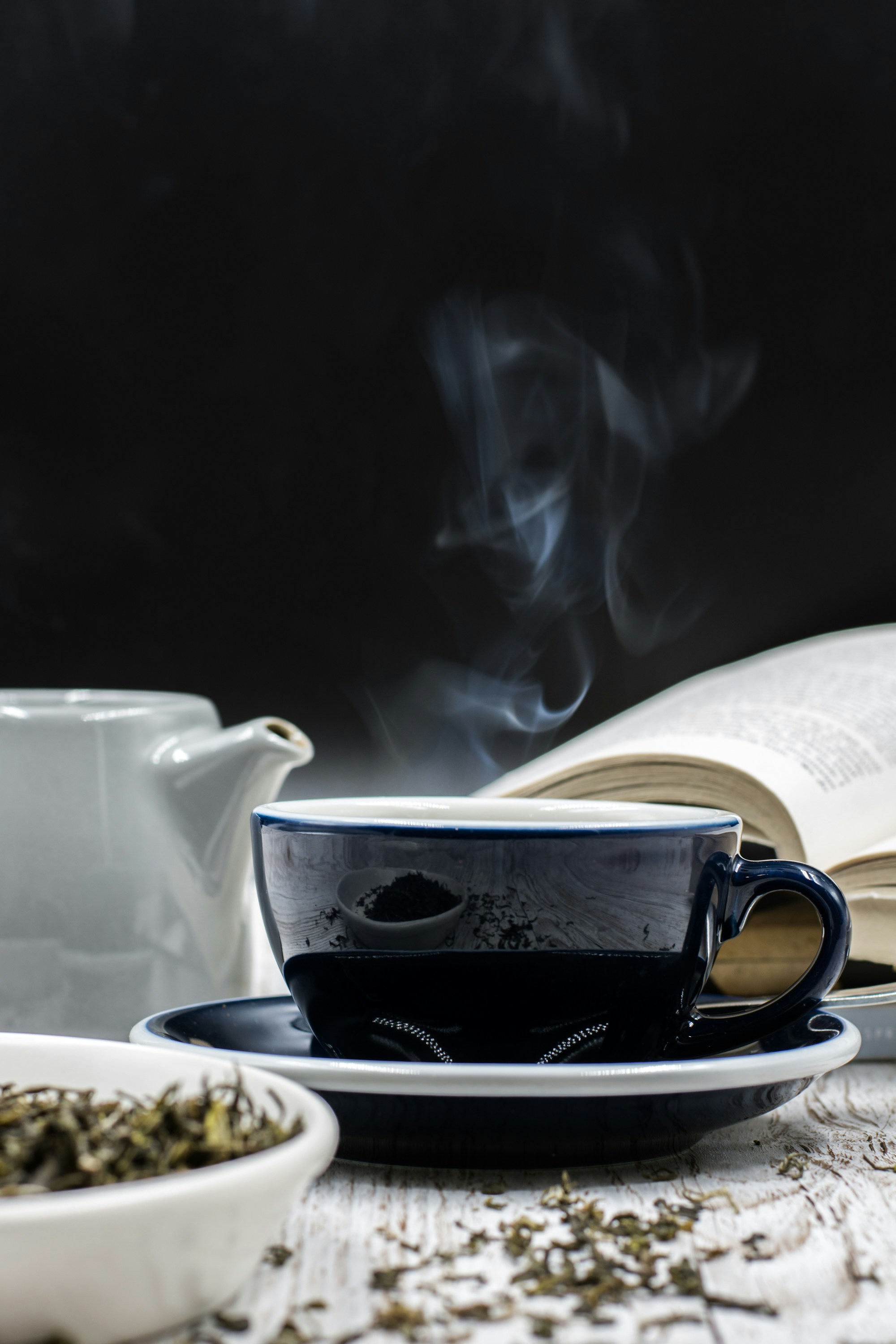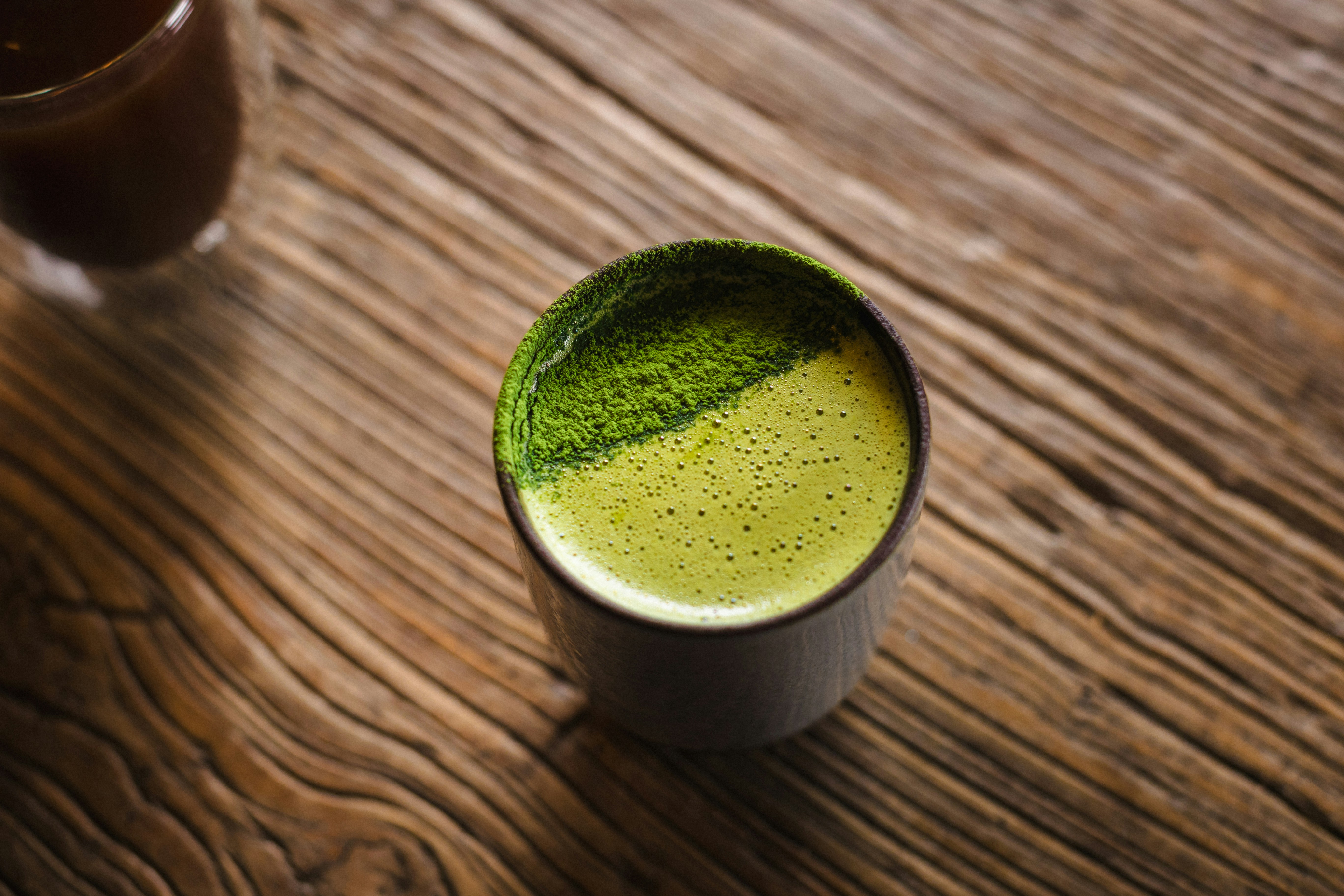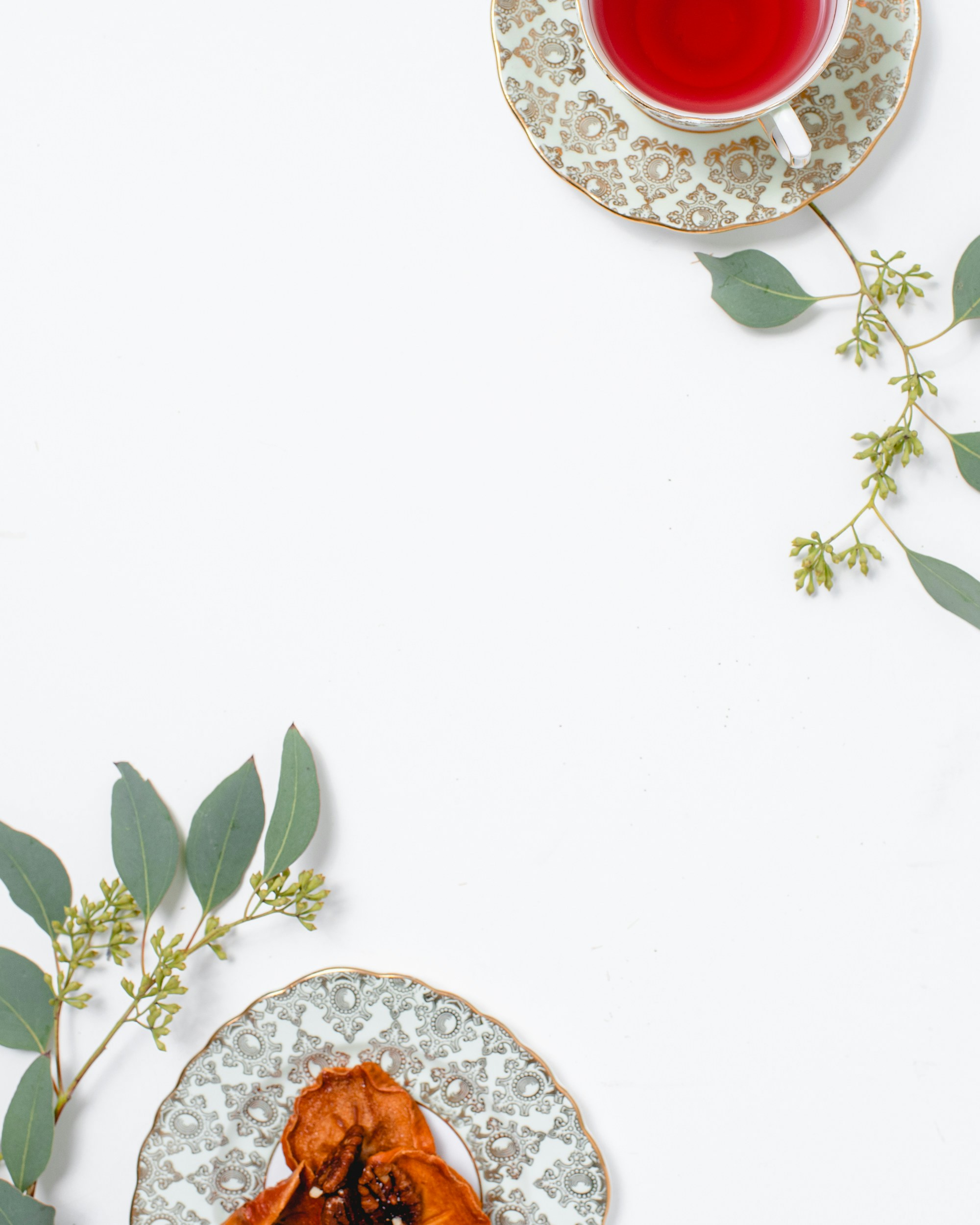Introduction: The Ritual of Tea and Its Role in Our Lives
Throughout history and across cultures, tea has transcended its role as a mere beverage; it has evolved into a profound ritual that binds people together. From the bustling streets of Tokyo to the tranquil tea houses in England, the act of drinking tea encompasses more than just a moment of hydration; it serves as a soothing balm for the mind and a catalyst for connection. This enchanting practice fosters a sense of community and encourages contemplation, ultimately enriching emotional well-being.
The ritual of tea drinking often elicits a deep sense of nostalgia and warmth. Many people can recall comforting moments shared with family or friends over a cup of tea, whether it is a relaxing afternoon spent with a loved one or a moment of solitude to unwind after a hectic day. These shared experiences highlight the unifying aspect of tea, which transcends age, culture, and background. In a world increasingly driven by fast-paced interactions, the deliberate act of preparing and enjoying tea creates a welcome oasis of calm.
Moreover, the sensory aspects of tea—its aroma, warmth, and soothing flavors—play a crucial role in establishing a tranquil environment conducive to relaxation and mindfulness. The simple act of brewing a pot of tea may encourage individuals to slow down, take a deep breath, and immerse themselves in the present moment. This mindful approach to tea drinking can significantly influence emotional health, as it allows an individual to step back and reflect, prioritizing mental clarity amidst the chaos of daily life.
As we embark on this journey to explore the surprising ways tea benefits affect mood and mind, it is essential to recognize the collective significance of this cherished ritual. Beyond its myriad health benefits, tea offers a unique opportunity to cultivate emotional well-being and foster connections, making it an integral part of human experience across generations.
The Science Behind Tea and Mood
Tea is not only a popular beverage but also a source of various compounds that can positively influence mood and cognitive function. The most notable of these compounds include L-theanine and catechins. L-theanine, an amino acid predominantly found in green tea, has been extensively studied for its calming effects. Research indicates that L-theanine promotes relaxation without causing drowsiness, potentially enhancing overall mood by modulating brain waves. A study published in the Journal of Clinical Psychiatry demonstrated that L-theanine supplementation resulted in reduced anxiety levels among individuals experiencing high-stress situations.
Catechins, on the other hand, are a type of antioxidant found in tea that contributes to its health benefits. These compounds, particularly prevalent in green tea, have been associated with improved cognitive function and memory. A systematic review published in the journal Nutritional Neuroscience indicated that catechins may enhance mental clarity and focus, which can further influence mood positively. The synergy between L-theanine and catechins creates a unique profile that helps mitigate the jittery effects often caused by caffeine consumption. Contrary to popular belief, the caffeine found in tea does not necessarily lead to heightened anxiety or stress. Instead, the combined effect of L-theanine and caffeine tends to promote a state of relaxed alertness, enabling individuals to feel more focused without undue strain.
Moreover, various studies have explored the mood-enhancing properties of tea consumption. A significant study from the University of California found that regular tea drinkers reported lower levels of stress and depression compared to non-drinkers. This evidence reinforces the idea that the compounds present in tea can serve as valuable allies in enhancing emotional well-being. It is essential to distinguish between the different types of tea available, as their varying qualities may produce varying results on mood. Overall, incorporating tea into one’s daily routine may offer a simple yet effective strategy for improving mental health.
Different Types of Tea and Their Unique Benefits
Tea, enjoyed by millions worldwide, offers an array of benefits that extend beyond mere refreshment. Each type of tea possesses unique properties that can significantly impact mood and mental well-being. Among the most popular varieties are green, black, herbal, and oolong teas, each contributing distinct advantages.
Green tea, for instance, has gained recognition for its high antioxidant content, particularly catechins, which are known for their mental clarity benefits. Many individuals report feeling more focused and alert after consuming green tea. One such individual, a college student named Sarah, shared her experience: “Switching from coffee to green tea has improved my concentration during study sessions without the jitteriness I used to feel.” This highlights how green tea can provide a more stable mood boosting effect, promoting a calm yet alert state of mind.
On the other hand, black tea, rich in theaflavins, has been shown to reduce stress levels. Its robust flavor and higher caffeine content can also offer a welcome energy lift. Jane, a busy professional, finds solace in a warm cup of black tea during her afternoon break: “It has become my ritual to sip black tea when I feel overwhelmed; it grounds me and helps me recharge.” Such anecdotes demonstrate how this type of tea can enhance one’s emotional resilience.
Herbal teas, although not derived from the Camellia sinensis plant like traditional teas, are equally noteworthy for their calming properties. Chamomile, for instance, is renowned for promoting relaxation and alleviating anxiety. David, a frequent traveler, carries chamomile tea bags to combat travel-related stress: “A cup of chamomile tea while flying has become my go-to for maintaining a peaceful mindset.” This showcases how herbal infusions can be significant allies in enhancing mood.
Lastly, oolong tea, often regarded as a middle ground between green and black, offers a complex flavor profile and is associated with various health benefits. Many enthusiasts appreciate its ability to improve mental clarity while reducing anxiety, allowing for a tranquil yet attentive mindset. Collectively, these various types of tea demonstrate the impressive ways they can positively affect mood and cognitive function, making tea a truly remarkable beverage.
Tea and Mindfulness: Creating a Calm Space
Incorporating tea into your daily routine can transform mundane moments into mindful practices that enhance well-being and foster a sense of calm. The ritual of preparing and savoring tea encourages individuals to be present in the moment, promoting mindfulness and relaxation. This begins with selecting the right tea that resonates with personal preference, be it calming chamomile or invigorating green tea. Each tea offers unique sensory experiences that can significantly influence mood.
The process of brewing tea can serve as a meditative practice. Begin by setting aside dedicated time for this moment, free from distractions. As you measure the tea leaves or tea bags, take a moment to appreciate their texture and aroma. Boiling the water becomes an opportunity to observe the bubbling as it heats, bringing your awareness fully to the present. Once the tea is steeped, the colors change, and the scents intensify, all inviting you to engage with your senses.
Many individuals have shared personal stories of how integrating tea rituals into their mindfulness practices has been transformative. For example, one individual recalls having a dedicated “tea time” each evening, where they disconnect from electronic devices and focus on the sensations of their tea. This practice has not only enhanced their appreciation of tea but has also provided a moment of respite from daily stressors, allowing for clearer thinking and improved emotional balance. Others find that sharing tea with a friend or family member deepens connections, creating a shared space for conversation and reflection.
Engaging fully in the experience of tea drinking yields numerous benefits for mental health, such as reduced anxiety and improved mood. Ultimately, the mindful practice of tea preparation and consumption can create a peaceful environment that nurtures the mind, helping individuals cultivate a calming space within their busy lives.
Cultural Rituals: Tea as a Connector
Tea has been an integral part of cultures worldwide, serving not just as a beverage but as a powerful connector among individuals. The diverse rituals surrounding tea highlight its role in fostering relationships, enhancing well-being, and creating a sense of community. One prominent example is the Japanese tea ceremony, or “Chanoyu.” This meticulously choreographed event goes beyond the act of drinking tea; it embodies values of harmony, respect, purity, and tranquility. Through the careful preparation and presentation of matcha, participants engage in a meditative experience, promoting mindfulness and a deeper connection with one another.
In China, the Gongfu tea ceremony emphasizes skillful brewing, where tea is prepared using specific techniques to reveal the tea’s full flavor potential. It also serves as a platform for social interaction, allowing family and friends to gather and appreciate the subtleties of various teas. This practice cultivates not only a shared appreciation for the intricate details of tea but also strengthens bonds among participants as they engage in conversations that may shift from light-hearted banter to profound discussions.
Across the ocean, the British afternoon tea tradition offers a unique setting for social connection. Typically enjoyed during the late afternoon, this ritual combines tea with an array of pastries and sandwiches. It is often seen as an opportunity for friends and family to reconnect, share stories, and experience moments of joy together. The simple act of pouring and sharing tea acts as a catalyst for laughter and warmth, contributing positively to one’s mood and emotional health.
Such cultural practices illustrate that tea is much more than a beverage; it is a medium through which people share experiences, elevate their spirits, and forge lasting memories. By participating in these rituals, individuals can enhance their emotional well-being and nurture their connections with others, ultimately showcasing tea’s remarkable ability to bring people together.
Tea for Emotional Support: Personal Stories
The emotional landscape of life is often marked by challenges that can leave individuals feeling overwhelmed. For many, the act of brewing and enjoying a cup of tea serves as a comforting ritual during these difficult times. Several individuals have shared their personal stories, illustrating how tea has played a significant role in their emotional well-being.
One account comes from Sarah, who recounted how drinking chamomile tea helped her manage anxiety. She described evenings spent sipping the herbal infusion while reflecting on her day, which provided a peaceful moment amidst her racing thoughts. “It was as if each sip of tea was a gentle reminder for me to slow down and breathe,” she noted, highlighting the simplicity and therapeutic nature of this experience.
Another person, James, shared his experience during a period of grief. Following the loss of a loved one, he found solace in preparing green tea each morning. This ritual offered him a familiar task that helped ground him while navigating profound sadness. “The aroma of the tea transported me to a place of comfort,” he remarked, illustrating how tea became a source of emotional support, providing both a physical and mental anchor in tumultuous times.
Additionally, Laura described utilizing tea as a coping mechanism during her stressful work periods. She incorporated a mid-afternoon tea break into her daily routine, which became a sacred time for reflection and mental restoration. She mentioned, “It was my moment to reset; just me, my thoughts, and a warm cup of tea.” This encapsulates the significance of tea not only as a beverage but as a mindful practice that nourishes the spirit during various emotional trials.
These testimonials reveal a common theme: the empathetic and nurturing qualities of tea can serve as a source of comfort during challenging emotional experiences. While personal journeys vary, the universal appeal of tea as a calming influence in the face of stress, grief, or anxiety is remarkable, showcasing its role in emotional support and mental well-being.
The Art of Tea Blending for Mood Enhancement
Tea is not just a beverage; it is an art form that can significantly impact our mood and mental well-being. Blending teas is a creative process that combines flavors, aromas, and therapeutic properties to create a unique infusion that resonates with one’s emotional state. The basic principles of flavor pairing play a crucial role in this process. For instance, florals like chamomile and jasmine are renowned for their calming effects, while citrusy notes such as lemongrass or orange can invigorate and uplift. Understanding these pairings allows tea enthusiasts to craft blends that not only taste delightful but also enhance their mood.
Moreover, the emotional effects of various tea ingredients cannot be overlooked. Herbs like peppermint and ginger are often used to promote clarity and energy, making them ideal for moments of fatigue. In contrast, spices such as cinnamon and cardamom bring warmth and comfort, perfect for reducing stress and fostering a sense of well-being. By experimenting with different components, individuals can develop personalized blends tailored to suit their mood, offering a therapeutic experience that goes beyond sipping a simple cup of tea.
When creating your tea blends, consider starting with a base tea, such as green or black tea, and layering it with additional herbs, spices, and flavors that resonate with how you wish to feel. A blend for relaxation may include green tea with lavender and lemon balm, while one aimed at boosting energy could consist of black tea with ginger and hibiscus. By inviting creativity into the blending process, one can discover new flavors and emotional upliftment.
We encourage our readers to share their experiences with tea blending. What mixtures have you created to enhance your mood? How do specific ingredients influence your feelings? Engaging with our community will not only foster a shared passion for tea but also open avenues for exploring the myriad ways this ancient beverage can positively affect our minds and emotions.
Practical Tips: Incorporating Tea into Your Daily Routine
Integrating tea into your daily routine can be a straightforward yet impactful way to enhance both your mood and mental clarity. One effective approach is to create a dedicated tea space in your home or office. This space doesn’t need to be elaborate; simply a small corner with a kettle, a selection of teas, and your favorite mug can transform tea-drinking into a mindful ritual. By having a designated area, you signal to your mind that it is time to relax and enjoy a moment of calmness, making this practice an integral part of your day.
Another practical tip is to establish a regular tea time. Choose a specific time during the day when you can step away from your tasks. Whether it’s a mid-morning break or an afternoon pick-me-up, having a set time to enjoy your tea can help create a healthier routine. Consider this time as an opportunity to recharge and reflect, allowing the tranquil effects of tea to positively influence your mindset throughout the day.
Using tea as a mindful break during busy workdays can also offer significant benefits for your mood and mental health. When you feel overwhelmed by tasks, take a few moments to brew a cup of your favorite tea. Focus on the sensory experience—the aroma, the warmth of the cup, and the flavors as they unfold. This practice not only provides a necessary pause but also promotes mindfulness, aiding in reducing stress and enhancing overall emotional well-being.
Incorporating tea into your daily life doesn’t require extensive changes; small, meaningful adjustments can create a positive impact. By creating a space, setting a time, and embracing tea as a mindful break, you can gradually cultivate a beneficial routine that elevates your daily mood.
Conclusion: Your Journey with Tea Awaits
Throughout this exploration of the effects of tea on mood and mental well-being, we have uncovered various dimensions of this ancient beverage that extend beyond mere refreshment. Tea offers a unique combination of bioactive compounds, including flavonoids and L-theanine, which are widely recognized for their potential to enhance mood, reduce anxiety, and improve cognitive function. Engaging in the ritual of tea preparation and consumption serves not only as a moment of mindfulness but also cultivates a serene, calming experience amidst the chaos of daily life.
Moreover, different types of tea – ranging from green to herbal varieties – present distinct benefits. For example, green tea has been associated with enhanced alertness and focus, while chamomile is often celebrated for its soothing properties that aid in relaxation. As we highlighted, the act of selecting a tea can be a delightful journey in itself, encouraging exploration and experimentation. This experience can lead to greater self-awareness and understanding of personal preferences, ultimately enriching one’s overall mental landscape.
We invite you to embrace tea not just as a simple beverage but as a valuable companion in your life journey. Consider incorporating various types of teas into your daily routine to see how they affect your mood and mental clarity. Whether it’s a moment of quiet contemplation with a cup of chamomile or a revitalizing break with a brisk black tea, each sip holds the potential to uplift and inspire. Ultimately, we encourage you to share your experiences with others, fostering a community of tea enthusiasts who can exchange insights and enjoy the myriad benefits that tea has to offer.








Leave a Reply